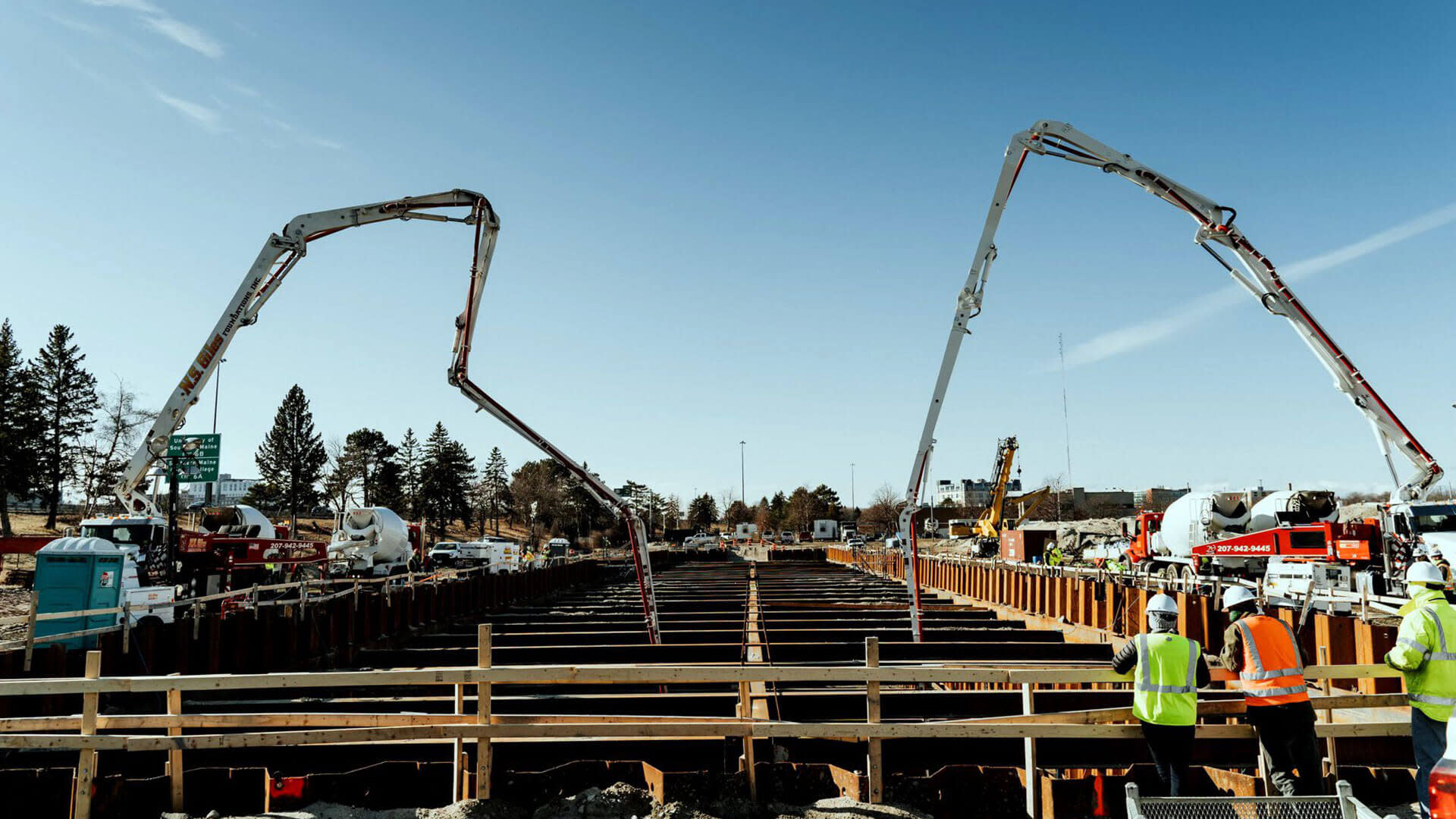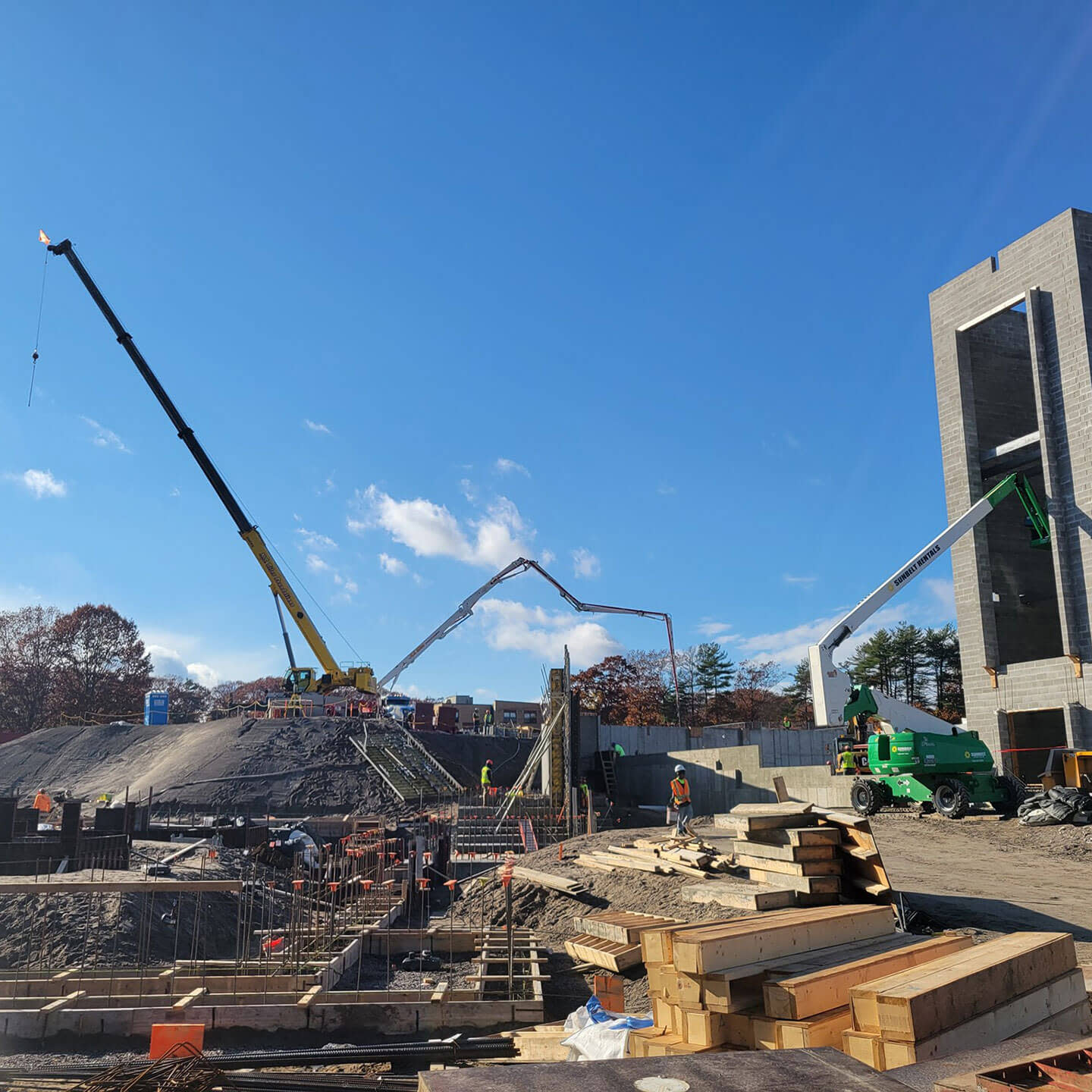With Procore, N.S. Giles Spends Less Time on Paperwork and More Time Boosting Productivity and Safety.
The Challenge
N.S. Giles had a fantastic safety program working within their business but was bogged down with pen and paper processes. Kyle O'Connell, Director of Safety for N.S. Giles knew there had to be a better way. O'Connell grew weary of witnessing their field teams waste time filling out manual processes, double entering data, and having to redo misplaced or incorrect paperwork. These manual and outdated processes meant N.S. Giles teams were not able to focus on productivity and efficiency.
The Solution
O'Connell, along with other N.S. Giles project managers and leaders worked with Procore across many general contractor client accounts. In practice, this required the N.S. Giles team––a paper-driven operation––to scan their paper documentation for their clients and upload it to Procore.
O'Connell noticed how quickly and easily even their most tech-adverse field employees learned and adopted the software. As a user on a GC Procore account, O’Connell had limited access to tools and features, however, what he did see was enough to be convinced Procore was what his team needed. O’Connell realized that investing in their own Procore account would allow his team to replace time-wasting and inaccurate manual processes with easy to adopt digital solutions.
Having their own Procore account gave them access to many additional tools purpose-built for specialty contractors such as document management autonomy, the ability to monitor remote jobsite progress, and the means to protect themselves through daily logs.
The Results
“Procore helps us with our OSHA compliance by putting all of our documentation right at our fingertips. Not having to track and gather paperwork saves man-hours. Procore means less time doing documentation, more time placing concrete.”

Kyle O’Connell
Safety Director
N.S. Giles struggled with efficiency due to outdated, paper-based processes.
N.S. Giles began with a crew of precisely one. Today, N.S. Giles is a preeminent specialty contractor, performing jobs throughout Maine. Working with top enterprise general contractors, N.S. Giles often found themselves obliged to work within the GC’s Procore platform. In those jobs, as a paper-driven company, N.S. Giles had to develop workarounds to get their hard copy documentation into the GC’s Procore account.
O’Connell is N.S. Giles’ Safety Director. “I was sending a three-ring binder with the SDS (Safety Data Sheets) book, a second with the safety policy, and a third with fork, truck, and crane inspections. My guys were then forced to fill them out daily, take a picture, and send them to the general contractor so they could be uploaded to Procore. It didn't make a ton of sense why we were doing so much extra work.”

Swapping Wasted Time for Value-Added Time
Procore’s increasing presence in the construction space had not gone unnoticed by O’Connell and his team. And they’d certainly had plenty of experience working with Procore-equipped GCs. Additionally, O’Connell and his team were regular attendees to World of Concrete and would frequently meet with representatives at the Procore booth. These discussions helped shed light on the many ways Procore has developed solutions specifically designed for specialty contractors like N.S. Giles.
“When we finally bought Procore, we already knew the system, and we were used to using it,” says O’Connell. Though not everyone at N.S. Giles was a tech enthusiast, Procore’s intuitive interface was a sufficiently low barrier to entry for the team––even the tech-hesitant. “We thought Procore would be the easiest way to get the people in the field on board.”
When O’Connell made his Procore pitch, he found it an easy case to make. “I met with the Procore team, and then I met with the owner of the company, and I said, ‘You know, Procore is a 10 out of 10. We need to do this.’” Giles’ owner agreed. O’Connell hasn’t looked back. “Procore works for us—and we haven't even scratched the surface."
Much of O’Connell’s relief these days comes from having a worry-free response to surprise safety inspectors. “For concrete contractors, we have to have a lot of documentation for the silica rule. You’re running data on your guys as they cut and drill concrete, and you have to have your silica policy. You need a respirator, respirator policies, and voluntary respirator policies. Now we have our documentation in Procore on our phones or iPads,” says O’Connell.
Beyond improvements in their safety process, O’Connell sees tremendous benefits to the business in general. An example of this is their significant reduction in paper-based processes. O’Connell explains, “Procore has helped eliminate manual processes for sure, and just our overall process and technology. I think it's been really big for the company to get rid of pen and paper. I think that's really helping us become more efficient and lean as a company.” The reduction in paper-based processes has been so successful that they have been able to convert space originally used for the storage of file cabinets and documents into a storage room for PPE equipment.

Having our own Procore account puts us in the driver's seat.
Document management is a crucial accountability backstop in the complicated, intensely scheduled world of the specialty contractor. “Procore’s daily logs have helped us tremendously,” O’Connell says. “We work with really tight timelines. The customer sets a timeline, the general contractor agrees to it, and then we agree. Given the inevitable delays that plague most projects, it can be almost impossible to hit every timeline target.” The specialty contractors’ focal point in the project timeline makes accessible record-keeping essential.
As a user on the GCs account, N.S. Giles did not have access to tools that enabled them to organize, manage, and access critical documents and track communication. Purchasing their own account allowed them to keep better records and hold others on the project accountable. Since these records, documents, daily logs, and all other project data is cloud-based they can access it from anywhere on any device.
“For example, the concrete truck was late. Or we got delayed because the electrician was working in our space, or we got delayed because the GC shut the job down. So when we go to those meetings, and they're pointedly asking us, ‘Hey, you're two weeks late.’ We can look back on our daily log and say ‘…we're two weeks late because you shut the job site down on Tuesday, Wednesday, and Thursday. Oh, and in the first week of March.’ That's been incredibly helpful.”
O’Connell’s role as Safety Director has a lot to do with document management, but N.S. Giles’ decision to purchase their Procore instance yields other benefits; checking out fieldwork from a remote location miles away, for instance. O’Connell explains.
“We work the entire state of Maine, so we can't physically be everywhere. With Procore, the PMs can get on the platform and look at someone refacing a concrete wall. The worker can take a picture of the wall and say, ‘Hey, I just did this,’ and the PM can sit there, many miles away, and review the work.” Aside from remotely viewing field work being done in real time, a site visit can suggest assigning tasks right there on the spot. ”I can go to a jobsite,” O’Connell says, “take pictures and assign tasks without having to stick a note in my pocket to remember later. If I see trash or uncapped rebar, I can take a picture and assign it to the foreman with instructions. ‘This needs to be fixed ASAP.’ It doesn't even have to be a phone call; I can send a message within Procore right there and then. It's fast.”
O'Connell and the team at N.S. Giles has found that having their own Procore allows them to keep themselves and their clients accountable to commitments and deadlines.
“Procore meshes with subcontractors all across the board. If all subcontractors had Procore, jobs would run more smoothly— and there would be a lot less searching through emails and a lot less searching on the server. We’re on the jobsite to tie rebar, pour concrete, and build foundations. Procore makes the documentation—and the whole project—more efficient. That means more time to make money. And it's really as black and white as that.”








